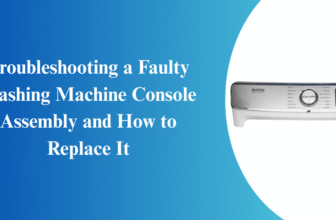Introduction
Estate planning is a critical aspect of ensuring that your wishes are respected and your loved ones are cared for after your passing or in the event that you become incapacitated. One of the most essential tools in this planning process is the power of attorney (POA). This legal document grants another person the authority to act on your behalf in various matters, making it a vital component of a comprehensive estate plan. In this article, we will explore the significance of having a power of attorney, the different types available, how to choose an agent, and answers to frequently asked questions.

Understanding Power of Attorney
A power of attorney is a legal document that allows you (the principal) to designate another individual (the agent or attorney-in-fact) to make decisions on your behalf. These decisions can encompass a range of areas, including financial matters, healthcare decisions, and legal affairs. The POA can be effective immediately or can become effective upon a specific event, such as the principal’s incapacitation.
Types of Power of Attorney
- General Power of Attorney: This grants broad powers to the agent, allowing them to make decisions in a wide array of areas, such as managing financial transactions, handling real estate, and making legal decisions.
- Limited Power of Attorney: This grants the agent authority only for specific tasks or for a limited period. For example, it may allow someone to sell a property on your behalf while you are out of the country.
- Durable Power of Attorney: This type remains in effect even if the principal becomes incapacitated. It is essential for ensuring that your affairs can continue to be managed if you are unable to make decisions for yourself.
- Healthcare Power of Attorney: This grants the agent the authority to make medical decisions on your behalf if you are unable to do so. This can include decisions about treatments, surgeries, and end-of-life care.
- Springing Power of Attorney: This becomes effective only upon a specific event, usually the incapacitation of the principal. It allows for control over your affairs when you need it most, but only under those circumstances.
The Importance of Having a Power of Attorney
1. Ensures Continuity in Decision-Making
One of the primary reasons for having a power of attorney is to ensure that your affairs are managed without interruption. If you become incapacitated due to illness or an accident, having a designated agent allows for seamless decision-making. This continuity is crucial for managing financial matters, healthcare decisions, and other essential functions.
2. Reduces Family Conflict
When a loved one becomes incapacitated without a power of attorney in place, family members may find themselves in disputes over who should make decisions on their behalf. This can lead to tension, resentment, and prolonged legal battles. Having a POA clearly outlines your wishes and designates a trusted person to act on your behalf, thereby reducing the potential for family conflict.
3. Provides Peace of Mind
Knowing that you have appointed someone you trust to handle your affairs can provide significant peace of mind. It alleviates the stress of uncertainty about who will take care of your needs if you cannot do so yourself. This assurance can be especially comforting as you age or face health challenges.
4. Facilitates Healthcare Decisions
A healthcare power of attorney is essential for ensuring that your medical wishes are respected. In the event of serious illness or incapacity, your designated agent can make informed decisions regarding your treatment options, ensuring that your preferences are honored, even if you cannot communicate them yourself.
5. Avoids Guardianship Proceedings
Without a power of attorney, if you become incapacitated, your family may have to go through a legal process to establish guardianship. This process can be lengthy, costly, and emotionally draining. By having a POA in place, you can avoid these proceedings and have your affairs managed by someone you have chosen.
6. Financial Management
A general or durable power of attorney allows your agent to handle your financial matters, such as paying bills, managing investments, and filing taxes. This is particularly important if you become unable to manage these tasks due to health issues. Your agent can step in and ensure that your financial obligations are met, preventing potential financial complications.
7. Customizable Authority
One of the benefits of a power of attorney is that it can be customized to fit your specific needs. You can choose what powers to grant your agent, whether broad or limited. This flexibility allows you to tailor the POA to your unique circumstances, ensuring that your agent has the necessary authority to act on your behalf.
8. Cost-Effective Solution
Establishing a power of attorney is generally a straightforward and cost-effective process compared to the potential legal fees associated with guardianship proceedings or resolving disputes among family members. By proactively setting up a POA, you can save your loved ones time and money in the long run.
Choosing the Right Agent
Selecting the right person to act as your agent is one of the most critical decisions you will make in your estate planning process. Here are some factors to consider when choosing your power of attorney:
1. Trustworthiness
Your agent should be someone you trust implicitly, as they will have significant control over your financial and healthcare decisions. Consider individuals who have demonstrated reliability and integrity in their actions.
2. Availability
Choose someone who is likely to be available and accessible when needed. This is particularly important for healthcare decisions, where timely action may be required.
3. Understanding of Your Wishes
It’s essential that your agent understands your values and wishes. This ensures that they can make decisions that align with your preferences, especially in healthcare situations.
4. Willingness to Serve
Ensure that the person you choose is willing to take on the responsibilities that come with being an agent. This role can be demanding, and it’s important that your agent is prepared to fulfill it.
5. Communication Skills
Your agent should possess good communication skills to interact effectively with medical professionals, financial institutions, and other parties involved in your care and estate management.
Frequently Asked Questions
1. What happens if I don’t have a power of attorney?
If you do not have a power of attorney and become incapacitated, your family may have to go through the court system to establish guardianship. This process can be lengthy, costly, and may lead to disputes among family members.
2. Can I revoke a power of attorney?
Yes, you can revoke a power of attorney at any time, as long as you are mentally competent. This can be done through a written notice to your agent and any relevant institutions.
3. Do I need both a financial and a healthcare power of attorney?
While it’s not mandatory, having both types of power of attorney is advisable. A financial POA allows for management of your financial affairs, while a healthcare POA ensures your medical wishes are respected.
4. Can I be my own power of attorney?
You cannot designate yourself as your own agent if you become incapacitated. However, you can create a power of attorney while you are still competent, allowing someone else to manage your affairs if necessary.
5. How do I create a power of attorney?
To create a power of attorney, you typically need to complete a legal document that outlines your wishes and the powers you grant to your agent. It’s advisable to consult an attorney to ensure that the document complies with your state’s laws.
6. Is a power of attorney valid in another state?
A power of attorney is generally valid across state lines, but laws can vary. It’s important to check the specific requirements in any state where the POA may be used.
7. Can I have multiple agents?
Yes, you can appoint multiple agents, either to act together or separately. If you choose this option, ensure that all agents are aware of their responsibilities and have clear communication with one another.
8. What if my agent is unable to serve?
If your chosen agent is unable or unwilling to serve, having a secondary agent or successor designated in your power of attorney can ensure that someone can step in when needed.
Conclusion
Incorporating a power of attorney savannah is a crucial step in ensuring that your wishes are honored and that your affairs are managed appropriately in the event of incapacity. This legal document provides the flexibility to appoint a trusted individual to make decisions on your behalf, offering peace of mind for both you and your loved ones.
By understanding the various types of power of attorney, the importance of having one, and how to choose the right agent, you can take proactive steps to secure your future. As with any aspect of estate planning, it’s advisable to consult with a legal professional to ensure that your power of attorney is tailored to your unique circumstances and complies with state laws. With a well-drafted power of attorney in place, you can navigate the uncertainties of life with confidence, knowing that your wishes will be respected and your affairs managed according to your preferences.







